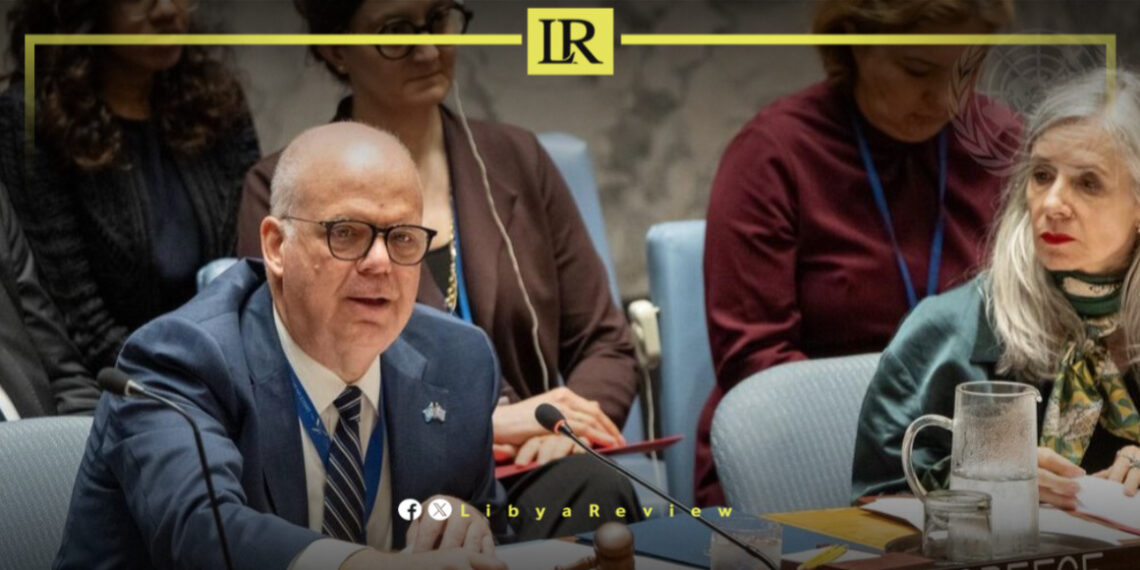On Tuesday, Greece’s Permanent Representative to the United Nations reaffirmed his country’s readiness to engage in dialogue with Libyan counterparts over the contested maritime boundaries in the Mediterranean.
The offer, made during a UN Security Council session, comes amid renewed international focus on Libya’s political transition and regional security dynamics.
The Greek envoy welcomed recent moves by Libya’s Presidential Council to improve security arrangements in Tripoli and expressed support for the outcomes of the Berlin Process Follow-Up Committee, which continues to serve as a platform for international coordination on Libya’s future.
Highlighting the broader regional implications of Libya’s stability, the Greek diplomat emphasized the urgent need for a complete withdrawal of all foreign forces, including regular troops, mercenaries, and irregular armed elements operating on Libyan territory.
He warned that ongoing violations of the UN arms embargo—some of which he described as aggressive- continue to undermine peace efforts and pose direct challenges to the EU’s Operation IRINI, which monitors the embargo.
The Greek representative also reaffirmed Athens’ commitment to Libya’s sovereignty, independence, and territorial unity. He noted that cooperation between Greece and Libya must be rooted in mutual respect and legal frameworks, particularly regarding the delimitation of maritime boundaries. Greece maintains that resolving the dispute through constructive, bilateral negotiations would help foster regional security, economic cooperation, and maritime stability in the Eastern Mediterranean.
Migration was also addressed, with the Greek diplomat noting that restoring order in Libya is crucial to curbing irregular migration flows to Europe. He emphasized that any long-term solution requires a secure and sovereign Libyan state, underpinned by inclusive governance and international support.
Greece’s diplomatic tone marked a departure from previous periods of heightened tension, signaling a more open and pragmatic approach toward addressing long-standing disputes with Libya.


